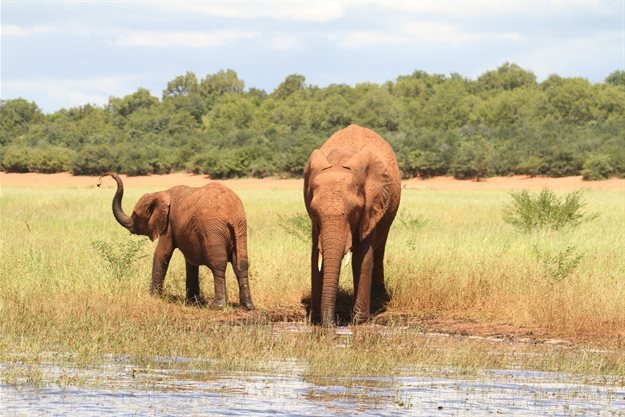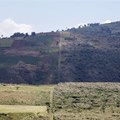IAPF seizes record number of elephant tusks during 2021 so far

IAPF CEO Damien Mander said the 62 elephant tusks were recovered in 19 separate ivory operations through the organisation’s investigations work and 37 arrests were made in relation to these. While it was often difficult to determine exactly when the ivory was poached, there was evidence some had been taken in the past few months, but some could also be older stockpiles, perhaps unable to be exported due to the Covid lockdowns, Mander said.
“Also, with the travel restrictions, there are fewer tourists, guides, vehicles and boots on the ground in the wildlife areas, and therefore poachers could be facing less resistance to getting in and killing animals.
“This obviously does not affect IAPF concessions as we are not based on a tourism model - but it does affect areas that rely on tourism for funding,” Mander said.
“If we had accurate information with regard to exactly when the ivory was poached, then we could say what the poaching levels are doing, but all we’ve got to go on is our recovery rate,” he said.
So while more tusks were being recovered, it could be directly related to the poaching rate, but it was impossible to say for sure, he added.
Three pangolins recovered
In addition to the elephant tusks, in January, three live pangolins, which are listed as a vulnerable species, were recovered. They are trafficked for their scales, which are used in traditional Chinese medicines, and their meat which is a delicacy in some Asian countries.
Five weapons were also recovered in the year to March 31, as well as five animal skins (two kudu, one leopard, one lion and a crocodile), nine pairs of fake rhino horn, and in a narcotics operation, cannabis and whole plants seized. This brought the total of alleged poachers arrested during the first three months of 2021 through the IAPF’s investigations work to 58.
Decline in wildlife crimes
Meanwhile, in Binga and Hurungwe, two very different landscapes patrolled by Akashinga, there has been a decline in wildlife crimes indicating it is being brought under control, which is encouraging, Mander said.
At Hurungwe, which includes the Phundundu and Nyaodza wildlife areas, poaching offences have been dominated by bush meat and logging, while at Binga, where the Songo wildlife area is, illegal fishing on a commercial scale is the main concern.
At Songo, large numbers of spur-winged geese and comb ducks, a few buffalo and many elephants have been back congregating on the floodplain, while small herds of impala have also been sighted.
The IAPF, working alongside local authorities, were involved in the arrest of 65 alleged poachers, while 237km of illegal commercial fishing nets were destroyed, more than 5 tonnes of fish impounded, and 95 vessels confiscated. One poached impala was also found.
Other illegal activities
In Hurungwe, 25 arrests were made – one was a bushmeat operation involving several species of wildlife, while the remainder were for illegal logging, gold panning, trespassing and the cultivation of cannabis. A total of 24 wire snares were also removed, and three groups poaching with dogs encountered.
“It’s good if that’s all they are doing, if that’s all they are getting, it means very few are going in there with snares and actually poaching. We want the poaching to dwindle to zero and the rangers to find nothing because it means almost no one would be coming in,” Mander said.
In Phundundu, rangers on patrol have reported sighting lion, python, buffalo, eland, duiker, kudu, zebra and warthog in recent months.
The Akashinga rangers began patrols in 2017, and by the end of 2019 their efforts had helped drive an 80% downturn in elephant poaching in the mid to lower Zambezi Valley in Zimbabwe.
This area, which is home to one of the largest remaining elephant populations on Earth, had lost 8,000 to poaching in the 16 years prior to the programme commencing.












